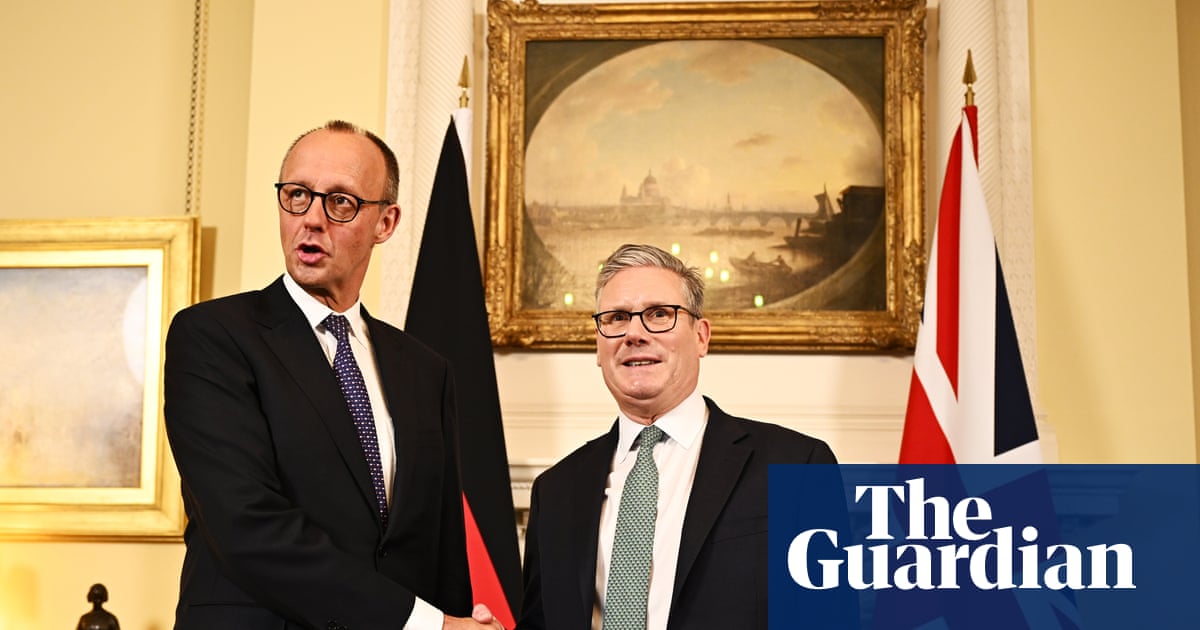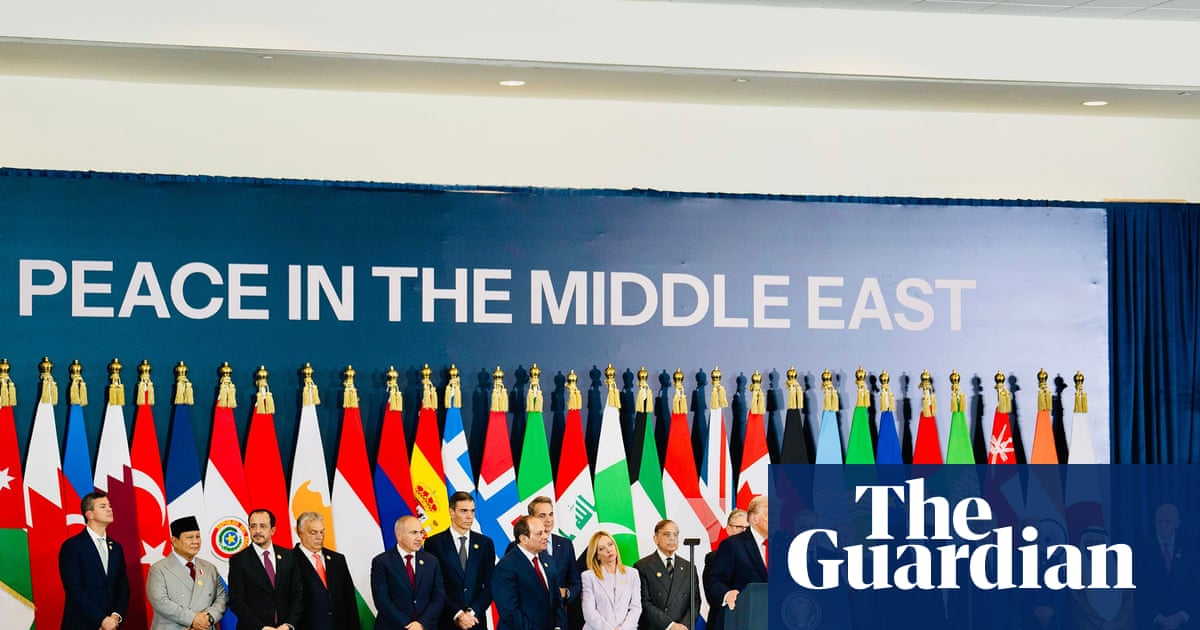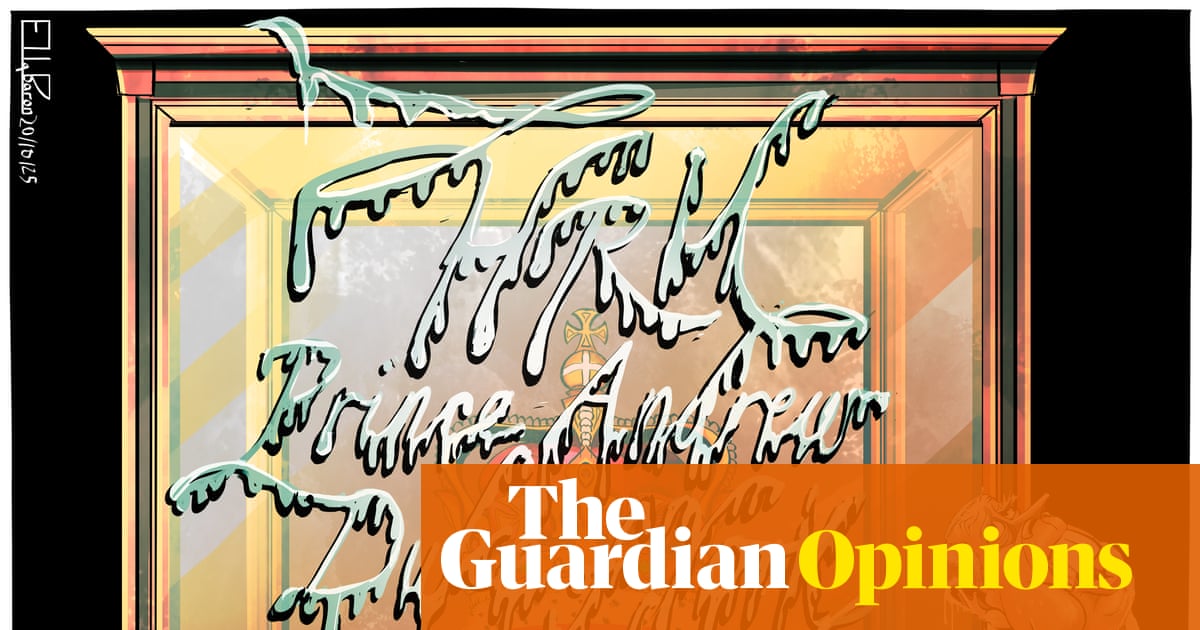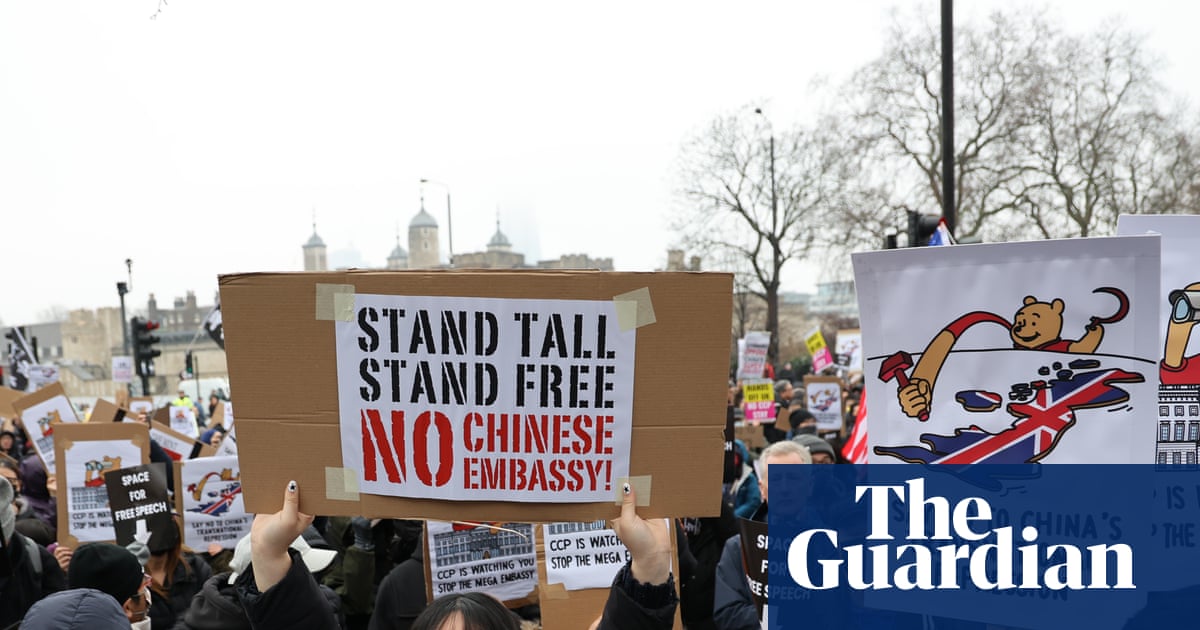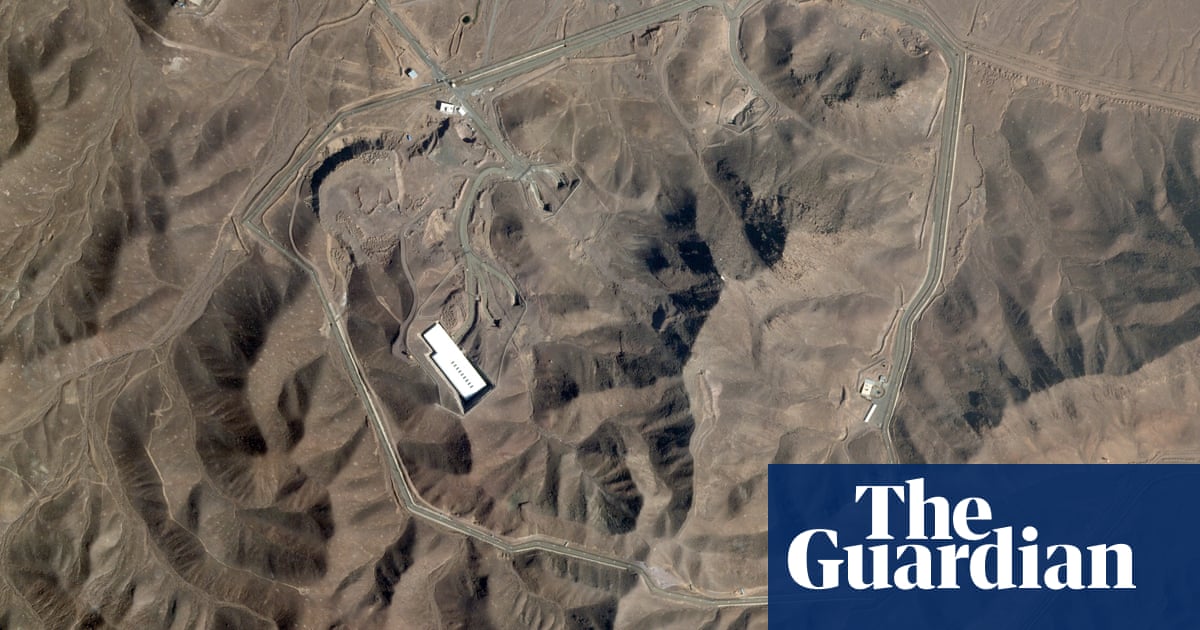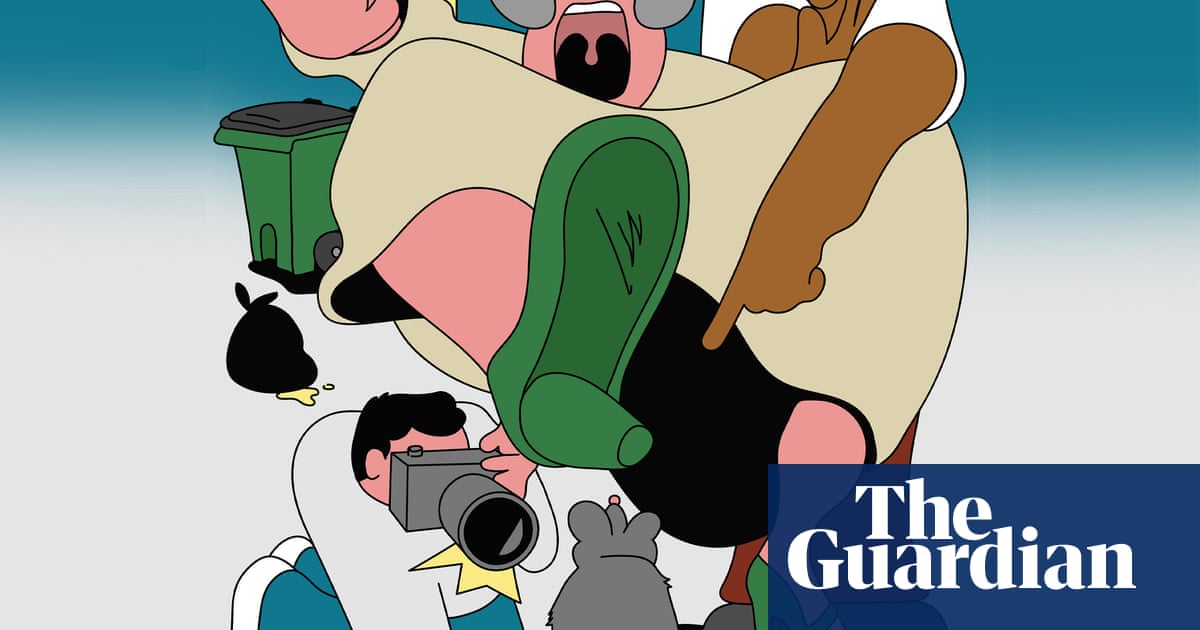Parliament is under mounting pressure to examine what the royal family knew about Prince Andrew’s links to Jeffrey Epstein and introduce a mechanism to strip him of his titles.
There were calls on Sunday night for Andrew to face a police investigation and for ancient rules barring parliament from freely scrutinising royals and formally removing their titles to be revisited.
The Metropolitan police confirmed they were looking into claims that Andrew asked his Met bodyguard to dig up information on Virginia Giuffre, who had accused him of sexual assault, hours before the bombshell picture of them was published in 2011.
Ed Miliband, the energy secretary, said leaked emails suggesting Andrew passed his close protection officer Giuffre’s date of birth and confidential US social security number were “deeply concerning”.
A spokesperson for the Metropolitan police said: “We are aware of media reporting and are actively looking into the claims made.”
The developing scandal forced Andrew to relinquish some of his royal titles on Friday, including Duke of York, having already lost the use of his HRH title after ceasing to be a “working royal”.
He retains the dukedom, which would take an act of parliament to remove, while his status as a prince could only be removed if a letters patent were issued by the king. Andrew has vigorously denied any wrongdoing, and the FBI formally ended its investigation into his links to Epstein in July.
But MPs and campaigners have called for further action including a Metropolitan police investigation into Andrew’s links to Epstein and an act of parliament to formally strip the prince of his titles.
Rachael Maskell, the Labour MP for York Central, said she was writing to ministers this week to back her bill giving the king or a parliamentary committee the power to formally remove Andrew’s titles.
“Every time this comes up, it clearly must be really traumatising for the victims and survivors, so it’s really important that this matter is dealt with once and for all,” Maskell said. “There are mechanisms which need to be put in place in order to remove a title.”
Nadia Whittome, the Labour MP for Nottingham East, said: “It should be a given that the state removes Andrew Mountbatten-Windsor’s titles, rather than allowing him to hide behind voluntarily renouncing them and mealy-mouthed statements blaming his accusers.”
Maskell proposed a removal of titles bill in 2022 which would enable the monarch or a parliamentary committee to remove titles in Andrew’s case and in the future. Similar legislation was enacted in 1917 to remove the titles of peers and princes who fought against the British in the first world war.
One senior Labour backbencher and select committee chair described Andrew as a “disgrace” and said he “brings shame on himself and those associated with him”.
“I would delight in voting for a parliamentary motion to strip him of all his titles,” they said.
Asked by the BBC if he would support such legislation, Miliband said “the royal family will have to make its own decisions about what other steps can be taken” but that they had suggested “they didn’t want to take up parliamentary time with this”.
Clive Lewis, the Labour MP for Norwich South, called for “a proper thorough investigation into what happened”.
“It’s very clear the sense of entitlement that Prince Andrew has comes with being a prince and being part of the monarchy. The bigger story here is the monarchy itself. This is why I think the king has closed up shop. It poses some very difficult questions about how power operates in this country,” he said.
George Foulkes, a Labour peer, wrote to the clerks of the Commons and Lords on Sunday night asking them to review rules restricting parliamentarians from asking questions about the royal family.
Foulkes said that early this year, the Lords table office rejected questions he tried to ask on Andrew and his 10-year role as a UK special representative for trade and investment, which the prince finally gave up in 2011 after a string of controversies.
after newsletter promotion
“I wanted to ask questions about whether he had a security briefing, what his role was and a number of other things,” Foulkes said. “I was told by the table office that questions about the royal family were prohibited in both the Commons and the Lords.”
Ultimately Foulkes was allowed to ask some specific questions about royal family expenditure, which parliament is allowed to question.
Parliamentary rules state that “questions that cast reflections on the sovereign or the Royal Family” more broadly are inadmissible. On Sunday Foulkes called for the rules to be reviewed “in light of recent events”.
Meanwhile, more than 1,000 letters were sent to MPs over the weekend urging them to push for a “full blown-parliamentary or independent inquiry into the royal Epstein scandal”.
Supporters of the campaign group Republic wrote to their MPs accusing them of being complicit in their silence and urging them to call for an immediate investigation. Republic have called for an inquiry to look at actions taken by the Met police and for Andrew to face prosecution.
“It is not credible to believe that the Met would not have informed senior royals of Andrew’s attempts to use them to smear Giuffre. There are also questions as to why the Met continues to refuse to investigate, interview or charge Andrew,” said Republic’s Graham Smith.
“Public anger is what’s going to push this forward and there is a palpable anger among the public who can see that Andrew being stripped of the use of his titles is no punishment at all.”
The Guardian published an extract from Giuffre’s posthumous memoir last week in which she detailed her first encounter with the “entitled” prince and said he “believed having sex with me was his birthright”.
The Mail on Sunday published messages Andrew allegedly sent to Ed Perkins, then the queen’s deputy press secretary, in 2011 saying he had asked one of his close protection officers to obtain information about Giuffre.
According to the messages, Andrew told Perkins he had given the officer Giuffre’s date of birth and confidential nine-digit social security number and claimed she had a criminal record in the US. The email was sent hours before the publication of an infamous picture of Andrew with 17-year-old Giuffre.
Her family has said she had no criminal record. There is no suggestion the police officer complied with the request.
Another leaked email obtained by the Mail on Sunday suggests that Andrew’s ex-wife, Sarah Ferguson, took Princesses Beatrice and Eugenie, then 20 and 19, to visit Epstein in New York after he was released from prison.
After an newspaper interview given by Ferguson in 2011 in which she said her association with him was a “terrible error of judgment”, Epstein wrote to Paul Tweed, his UK-based lawyer, in April 2011, and said she was “the first to celebrate my release”. A source close to Ferguson said that neither she nor her daughters had any recollection of such a visit.

.png) 3 hours ago
3
3 hours ago
3


